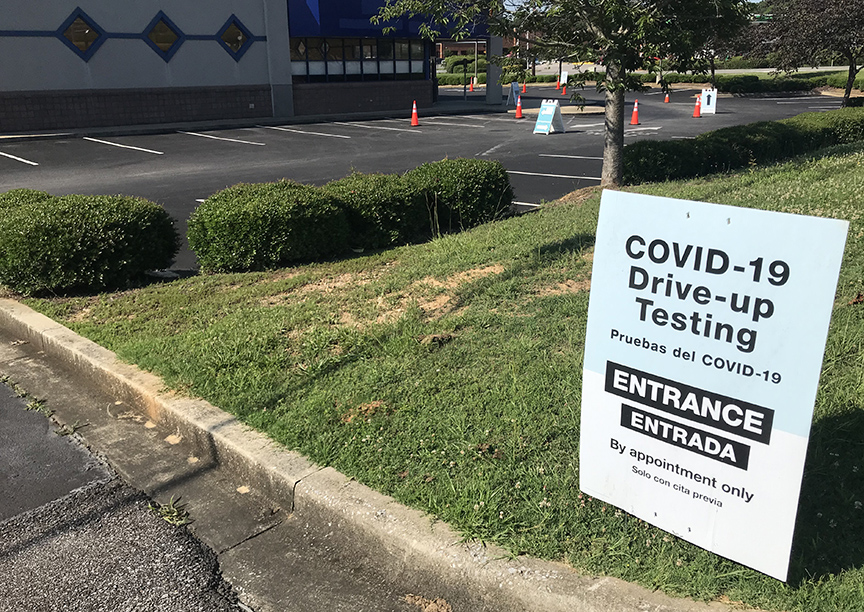Lack of reimbursement by insurance payers and CMS for asymptomatic patients may affect clinical laboratories offering SARS-CoV-2 testing.
Reimbursement for COVID-19 testing has been a changing field for clinical laboratories to navigate and understand. While significant legislation has been passed to ensure that COVID-19 testing is available and funded, there are still some areas of reimbursement that are not fully understood. One important area is reimbursement for asymptomatic individuals.
The COVID-19 STAT Intelligence Briefings Service spoke with Danielle Sloane about reimbursement for COVID-19 testing for asymptomatic patients. Sloane is a member at Bass, Berry and Sims in Nashville. An experienced healthcare regulatory attorney, Sloane specializes in helping healthcare providers and suppliers navigate the complexities of federal and state healthcare regulations.
“I do know that labs are getting a lot of questions about who is paying for COVID-19 testing on asymptomatic patients,” Sloane told COVID-19 STAT. “This is particularly true in the context of testing prior to elective surgery if the patient was self-isolating already and may not have been in a high-risk area.”
“The one requirement that Medicare has not waived is that the tests must still be medically necessary,” Sloane warned. “There are still some questions, particularly in healthcare facility settings where they want to test their workers, or employers who just want to test their employees before they bring them back to work.”

Danielle Sloane (pictured) of Bass, Berry and Sims, specializes in helping healthcare providers and suppliers navigate the complexities of federal and state healthcare regulations. Reimbursement for asymptomatic testing is still evolving, says Sloane. (Photo used with permission.)
Trends in Reimbursement for Lab Tests on Asymptomatic Patients
Several situations are used to prioritize asymptomatic testing in patient and population groups.
Vanderbilt University Medical Center, for example, prioritizes asymptomatic testing for patient populations that include transplant donors/recipients, inpatients being discharged to nursing homes (if required by the accepting facility), and hematology-oncology patients prior to administration of severely immunosuppressive anti-neoplastic chemotherapy.
Likewise, insurers and payers may be tailoring their coverage in unique ways.
Sloane addressed trends in reimbursement for asymptomatic patients by health insurance companies and Medicare, and how clinical laboratories should approach Medicare reimbursement.
“On the Medicare side, laboratories need to assume the medical necessity standard still applies,” Sloane said. Under the Families First Coronavirus Response Act and the Coronavirus Aid, Relief, and Economic Security (CARES) Act—both passed in March—commercial payers are required to cover all COVID-19 testing without cost sharing, prior authorization, or medical management limitations,” explained Sloane. Nonetheless, commercial payers may still deny the claims, and laboratories should be ready to push back.”
Get Ready for Reeling in COVID-19 Laboratory Test Reimbursement
While Medicare reimbursement may expand in the future, Sloane does not envision the Department of Health and Human Services (HHS) covering all testing, regardless of medical necessity. “I just can’t see how they can easily do that without putting some bounds on it,” she said.
Additionally, Sloane addressed the uninsured, who are covered under the HHS Health Resources and Services Administration (HRSA). It seems that the CARES Act will cover COVID-19 testing for asymptomatic patients.
“[HRSA] was asked the question, ‘If a provider tests for COVID-19 as part of a pre-operative or other medical treatment unrelated to COVID-19, is the test eligible for reimbursement?’ They pretty much said ‘yes, as long as one of three diagnosis codes is included in any position on the claim. And one of those is a code [Z-code] that stands for ‘encounter for screening for other viral diseases asymptomatic,’” explained Sloane.
To see the full list of frequently asked questions at HRSA related to COVID-19 claims reimbursement, visit this page, or copy the following URL into your browser: https://www.hrsa.gov/coviduninsuredclaim/frequently-asked-questions.
Asymptomatic Testing at the Behest of Employers
Toward reopening businesses in the US, asymptomatic employee testing has emerged in a potentially significant push for higher-volume COVID-19 testing. Speaking about employee testing, Sloane suggests considering the motivation: “Is that medically necessary testing, and is it even health insurance covered testing, meaning are you doing it more for the individual’s health or to protect the people who are around that person?”
Adds Sloane, “If the laboratory knows or suspects that the testing may not be medically necessary, then they probably should be requiring the employer to pay for it or whoever is asking them to do the testing. Or at least have an ‘in the event this is not covered you’ll be obligated to pay,’ clause; otherwise, they’re going to be left holding the bag.”
According to Sloane, some states have directly addressed this issue. “New York came out a couple weeks ago and the Department of Financial Services there essentially said, ‘health insurers, COVID testing is medically necessary in all circumstances,’ effectively telling payers to pay for it.
“But I know that the AHIP [the advocacy association of America’s Health Insurance Plans] is lobbying Congress for the next bill to carve back the circumstances health insurers have to pay for the testing,” Sloane added. Thus, uncertainties will remain about ongoing reimbursement.
“If I go to get a test and I’ve been working from home for three weeks and haven’t even been to the grocery stores, is my health insurance going to pay for me to get tested just because I decide I want to get tested?” questioned Sloane. “Many employers are looking to have their employees to get tested before they let them come in the door and are wanting repetitive testing, at that.”
Reimbursement is a significant consideration for clinical laboratories and pathology groups that may be working with asymptomatic patients, with the culture of debate intensifying around the true risk of asymptomatic spread of COVID-19. Most importantly, the medical necessity requirement could present a potential financial pitfall.
Clinical laboratories and pathology groups providing testing to asymptomatic patients should consider having a secondary plan in the event these tests are not covered.

—By Caleb Williams, Editor, COVID-19 STAT
Related Resources:
Asymptomatic Transmission, the Achilles’ Heel of Current Strategies to Control Covid-19






